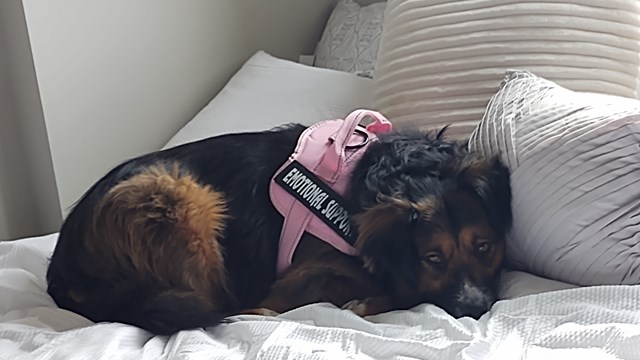
In a recent decision, a New York City co-op was ordered to pay $165,000 to a shareholder over the board’s refusal to allow her to keep her ‘emotional support parrots’ - a judgment the U.S. Attorney for the Southern District of New York described as “the largest recovery ever obtained for a person with disabilities whose housing provider denied them their right to have an assistance animal.”
The case the DOJ brought against The Rutherford, a 175-unit co-op in Manhattan’s Gramercy Park area, was not a question of pet policy, but of reasonable accommodation under the Americans with Disabilities Act (ADA). That may have been the most important factor in the case - one likely missed by the co-op and their board president, who ultimately became a defendant in the case himself.
The Facts
According to the case, the plaintiff shareholder had lived - and kept a series of pet parrots - in her unit for nearly two decades without issue. Around 2015 however, a new parrot joined the household, and the building’s management began receiving complaints from a neighbor about bird-related noise - however, the Department of Environmental Protection (DEP) sent inspectors to the apartment no less than 15 times, and found no evidence of excessive parrot-based disturbance.
Despite this lack of hard evidence, and despite the building being a ‘pet-friendly’ community, in 2016 the board decided that the birds violated the provisions of the co-op’s proprietary lease and house rules prohibiting excessive and annoying noises.
William McCracken, a partner with the Manhattan-based law firm Moritt Hock & Hamroff explains: “The co-op treated this shareholder the same as any other shareholder in accordance with the proprietary lease, and per its standard practice, notifying her via warning letters that she would be charged back for the co-op’s legal fees incurred in addressing her lease defaults.”
After receiving a notice to cure from the co-op, the shareholder produced a letter from a psychiatrist stating that the parrots were not merely pets, but emotional support animals that helped manage her depression and anxiety symptoms.
Letter notwithstanding, the co-op took the position that it was the shareholder’s responsibility to abate the noise from the birds. When complaints persisted, and the shareholder refused to pay the legal fees incurred by the co-op in addressing the matter, the board commenced what’s known as a holdover proceeding to evict her from the building. It’s important to note that while the shareholder had produced a doctor’s letter stating that her birds were for emotional support, it was not until several months after the holdover proceeding started that she first formally requested that the board make reasonable accommodation for her parrots.
“The question for co-op communities,” McCracken says, “is what did the co-op do wrong, and what can the rest of us learn from this case?
The Answer
According to McCracken, the board’s mistake actually had nothing to do with pet policy, and everything to do with reasonable accommodation under the ADA. “That policy,” he says, “would help guide all parties as to how to handle requests by disabled persons for a change or exception to the building’s rules and policies.
“In this case, the co-op seemed to argue that because it was a ‘pet friendly’ building, it did not need a reasonable accommodation policy. That takes too narrow a view of the building’s obligations. Here, for example, the shareholder needed the co-op to explore reasonable accommodations to its noise rules -- not to its pet rules. A properly-drafted reasonable accommodation policy would have outlined or suggested the steps the board should have taken in response to the shareholder’s request, and might have avoided the need for litigation.”
Indeed, in the spring of 2018, the shareholder filed a fair housing complaint with the Department of Housing and Urban Development (HUD) against The Rutherford, claiming its “ongoing effort to terminate her right” to live in the building was discriminatory because of her disability. According to a court filing, HUD found there “was reasonable cause to believe that the co-op discriminated against the shareholder on the basis of disability, and engaged in retaliation against her.”
The Lesson
According to McCracken, the law demands that persons with disabilities be respected, and reasonable accommodations made for them to have full use and enjoyment of their homes - whether that be an entryway ramp or wider doorways for wheelchair users, or an exception to a no-pets rule for service or emotional support animals.
In January 2021, the secretary of HUD charged the co-op with engaging in discriminatory housing practices and retaliation in violation of the Fair Housing Act. The Rutherford asked for the case to proceed in federal court. In the subsequent case, the DOJ cited testimony from the Rutherford’s board president that he did not consult applicable HUD guidance for dealing with reasonable accommodation requests, and instead was “[motivated by] stereotypes about persons with a disability-related need for emotional support animals,” and even mocked the shareholder’s disability in his deposition, suggesting that the psychiatrist who provided a letter supporting her disability was only doing so to “keep their business healthy” rather than for a good faith reason.
This past August, the court ultimately ruled against the Rutherford, and the co-op board agreed to pay the shareholder $165,000 in damages - plus another $585,000 for her apartment. The co-op board was also ordered to adopt a reasonable accommodation policy for residents with assistance animals, and to submit quarterly reports to the U.S. attorney's office to ensure its compliance with the agreement.
In the end, says McCracken, if you are serving as a board member for a co-op corporation or condominium association, you have a duty to take legally-recognized disabilities seriously. Failing to do so could be costly.









Leave a Comment